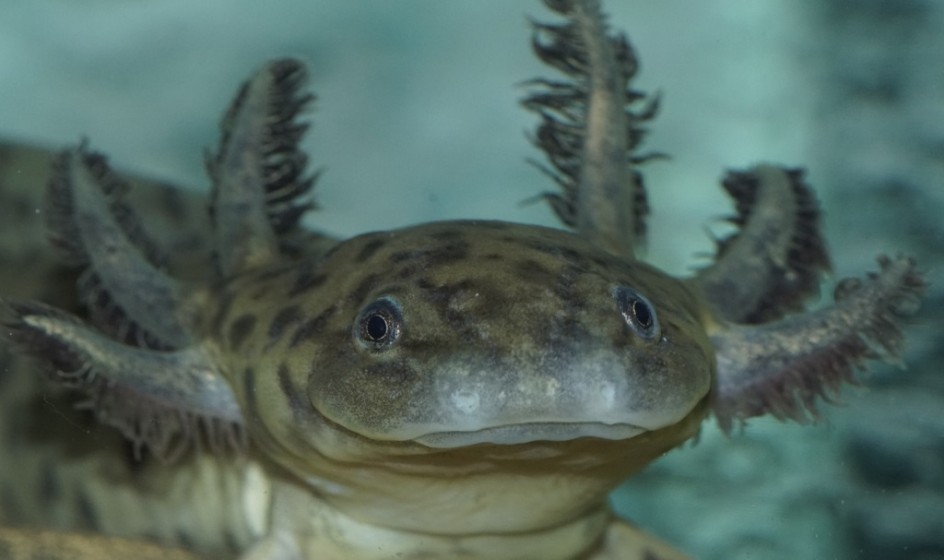

Taylor‘s Axolotl
A future for the Taylor‘s axolotl
Amphibian populations are declining worldwide mainly due to habitat loss, fragmentation and infectious diseases like the chytrid fungus. Aquatic species are especially vulnerable, because their habitat is frequently isolated and often serves as a final disposal point for urban or agricultural pollutants. Chemical pollutants are a major threat for amphibians, as they have been reported to cause abnormal development by inhibiting larval growth and increasing limb deformities. They can also negatively affect amphibian immune systems leading to higher levels of parasitism and susceptibility to infectious diseases.
One species that is especially affected by water pollution is the Taylor’s axolotl (Ambystoma taylori), a Critically Endangered salamander species protected by Mexican laws and endemic to Laguna Alchichica, a crater lake located in the east of Puebla, Mexico. This salamander is sympatric with another endemic and highly threatened species, the fish Poblana alchichica.
The lake receives many visitors during weekends and holidays, having the highest occupancy during Easter (around 6000 people). Most visitors come from many different cities and some of them come from local towns, but around 90% do not even know that there are two Critically Endangered species in the lake. Pollution resulting from tourism, combined with desiccation through water extraction for agriculture and the decrease in precipitation rate, may lead to an irreversible damage of the lake system.
The project was initiated by Africam Safari Zoo with support from the EDGE (Evolutionarily Distinct and Globally Endangered) of Existence programme of the Zoological Society London in 2015. Since then the project team has successfully conducted at least two litter clearance events, planted 13,500 trees around the lake and on private lands, achieved the formal protection of the lake by the Ministry of Environment, and established the ex situ population with the first breeding success in 2019.
Project objectives:
- To mitigate the threats to the Taylor’s Salamander habitat by involving the community in conservation actions
- To increase awareness of local communities and tourists
- To ensure the population viability through the captive breeding program and wild population monitoring
Project activities:
- Involving around 2000 inhabitants from four towns around lake Alchichica in conservation actions such as litter clearance, reforestation and rational use of water
- Establishment of a stable ex situ population in Africam Safari Zoo (Mexico)
- Long-term monitoring of the water quality and the Taylor’s salamander population in their natural habitat
- Conducting communication, awareness and education campaigns for the tourists and local communities
- Involvement of tourists into Litter clearance campaigns
- Campaigns in favour of reforestation efforts and optimal water usage
- Training and involvement of volunteer students from biology and veterinary medicine in amphibian monitoring techniques, amphibian handling, salamanders husbandry, or methods for social work
Project Partner: Africam Safari Zoo, Zoological Society of London, EDGE of Existence Programme